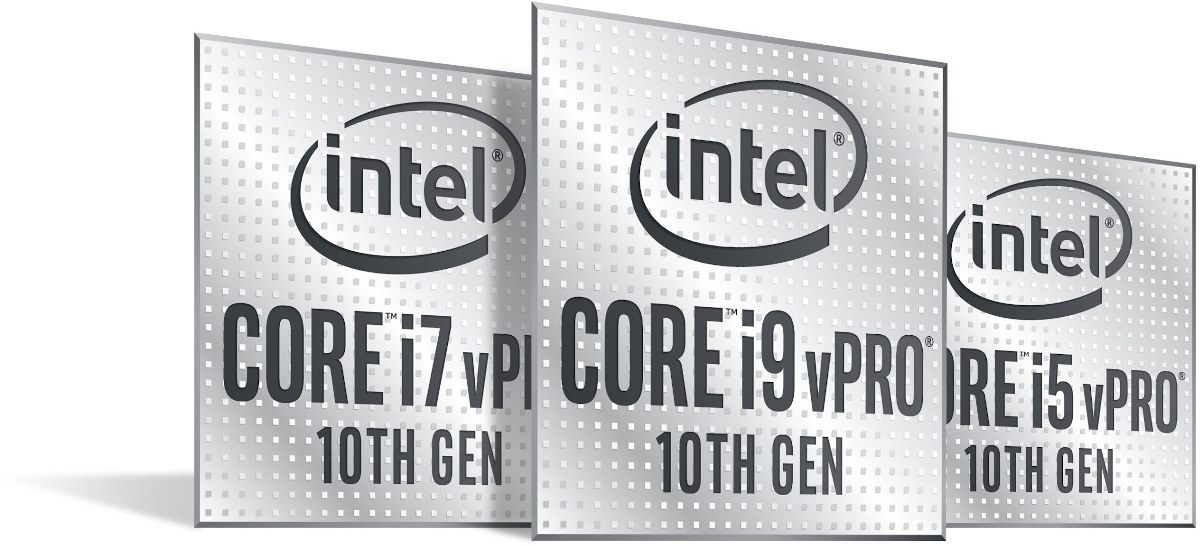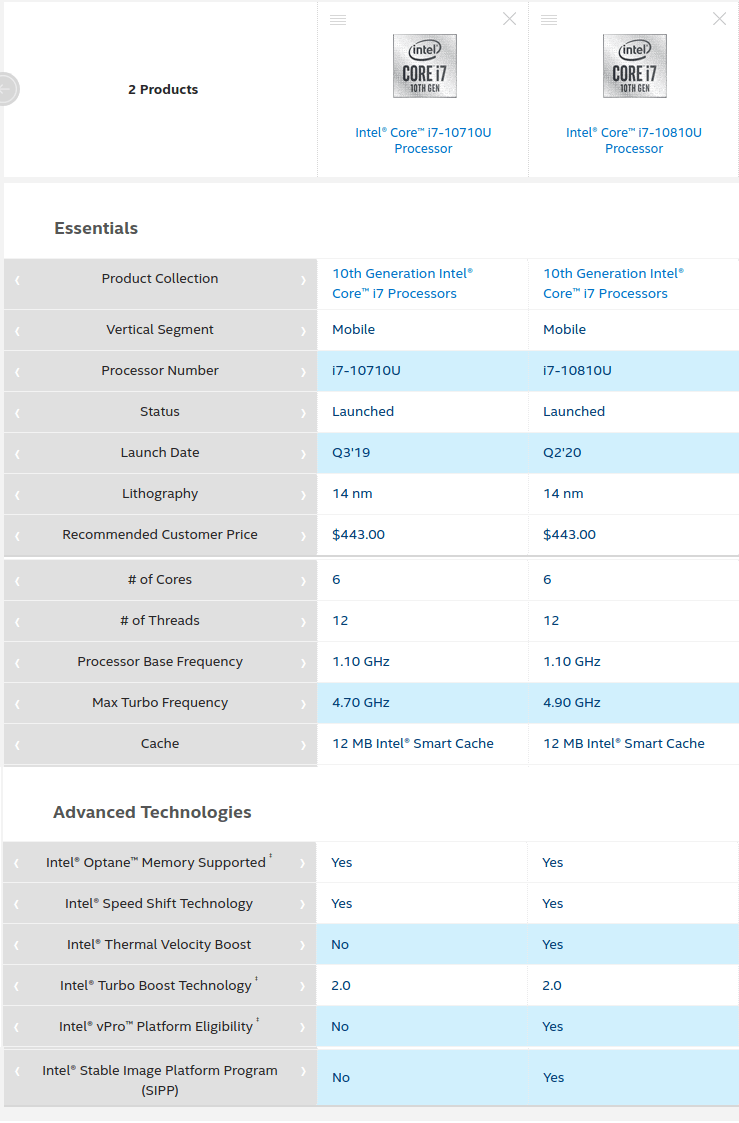Last week, we covered AMD Ryzen PRO 4000 processors with 15W TDP targeting ultra-thin business laptops with PRO features such as security, manageability, reliability, and longevity which are needed by enterprise customers.
AMD compared the performance of their new processors to Intel Comet Lake processors without PRO features, but Intel has now just announced several Comet Lake processors with Intel VPro, including three 15W parts aims at the same markets as AMD Ryzen PRO 4000 processors.

Liliputing has the full list of the about 40 parts that range from 15W to 125W Comet Lake Core VPro SoCs for mobile and desktop use to Comet Lake Xeon processors for workstations, but I’ll focus on the three 15W processors here:
- Core i5-10310U quad-core/octa-thread processor @ 1.7 GHz / 4.4 GHz (Turbo) with 6MB cache, 24EU Intel UHD Graphics; TPD down: 10W, TDP up: 25W
- Core i7-10610U quad-core/octa-thread processor @ 1.8 GHz / 4.9 GHz with 8MB cache, 24EU Intel UHD Graphics; TPD down: 10W, TDP up: 25W
- Core i7-10810U hexa-core/12-thread processor @ 1.1 GHz / 4.9 GHz with 12MB cache, 24EU Intel UHD Graphics; TPD down: 10W, TDP up: 25W
There’s nothing that specifically stipulates those are VPro capable processor in the product name. I suppose those are just existing Comet Lake processors with added VPro features. Let’s compare Core i7-10810U (VPro) with Core i7-10710U (non-Vpro).

I’ve mostly highlighted the changes above, but both processors are basically the same except for the slightly higher max turbo frequency of 4.9 GHz for Core i7-10810U, and support for some extra “advanced technologies” and one “Security & Reliability” feature:
- Intel Thermal Velocity Boost (TVB) – Enables temporary higher performance on top of Turbo Boost Technology by automatically increasing the processor’s clock frequency. Maybe that’s where the higher boost frequency comes from…
- Intel vPro Platform – Enterprise/business features built into the processor
- Intel Stable Image Platform Program (SIPP) – This is a “feature” part of VPro that makes sure drivers are validated and available for a longer period.

Jean-Luc started CNX Software in 2010 as a part-time endeavor, before quitting his job as a software engineering manager, and starting to write daily news, and reviews full time later in 2011.
Support CNX Software! Donate via cryptocurrencies, become a Patron on Patreon, or purchase goods on Amazon or Aliexpress. We also use affiliate links in articles to earn commissions if you make a purchase after clicking on those links.





I can’t understand why those CPU’s are even something to compete with Zen2 CPU’s. Why Intel keeps this sad fight that makes no sense at all? Intel fanboys are the only ones that still think Intel can beat Zen2 cores, but those don’t count. We are comparing rotten apples with fresh apples, which ones taste better? stupid question, no?
There is absolutely no possibility a 14nm fab can beat a 7nm fab, because they simply play different leagues. Intel is playing dumb and dumb, 6 years with the same fab because they have problems? are they nuts? they have no R&D department and outsource everything to a nameless and unexperienced company? c’mon. I’m more than tired of what they do, cheat, steal and laugh in your face. They simply want to get ride of all their 14nm investments completely until they do what they have to, and sell you a piece of crap covered in gold.
Enough, Intel.
>Intel fanboys
Are they worse than AMD fanboys or the locally sourced vegan instructions fanboys? They all seem to write the same old non-sense about process sizes and how they were personally hurt by a company they are too smart to buy anything from.
Agreed. What really matters is neither the process size which doesn’t mean anything anymore (it’s even worse than MHz rating), rather the peak performance on relevant application, and the amount of energy required to perform common operations.
If one allows me to compile a complete system image using 1/4 of my battery while the other takes the same time but uses 1/5 of the battery, then the second one is better. If the first one builds in 1h while the second builds in 45mn, then the second one is better. If the same CPU beats the other one on these two aspects at once, it allows me to choose between performance and battery life and definitely is better than the other one. The rest is just marketing or fanboy manipulation.
>The rest is just marketing or fanboy manipulation.
There has to be sort of manipulation to be able to write “ha! those guys aren’t innovating hard enough and outsourcing, these guys are better because they have feature they got from giving up on innovating and outsourcing”.
Lenovo has launched a few Comet Lake vPro solutions:
* ThinkCentre M70, M80, and M90 series desktops
* TIO22 and TIO24 Tiny-in-One solution (TIO)
* ThinkPad P14s and P15s mobile workstations (aka “laptops”)
Press release: https://news.lenovo.com/pressroom/press-releases/lenovo-pc-devices-place-security-and-manageability-center-stage-featuring-latest-10th-gen-intel-core-vpro-processors/